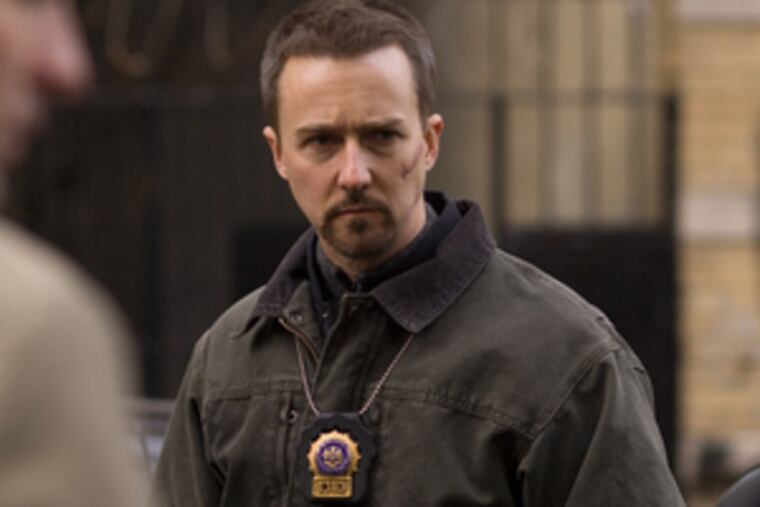Good cops, bad cops - been there
Maybe it's time to hang up all that reverence for the movies of the '70s, the so-called halcyon days when Hollywood let filmmakers experiment with "edgy" story lines and pictures weren't vetted by the studios' marketing departments.

Maybe it's time to hang up all that reverence for the movies of the '70s, the so-called halcyon days when Hollywood let filmmakers experiment with "edgy" story lines and pictures weren't vetted by the studios' marketing departments.
At the very least, maybe it's time to confiscate director Gavin O'Connor and writer Joe Carnahan's copies of Serpico and Prince of the City.
Gritty, jumpy and rife with cliches, Pride and Glory emits a distinct retro vibe even as its cameras swoop and jerk around the grimier precincts of modern-day New York, telling a tale of good cops and crooked cops, fathers, sons, brothers and in-laws who wear the NYPD badge with honor - or with self-interest, vengeance, and suspiciously large bank accounts.
Beginning on a muddy Coney Island football field and ending on the steps of a Manhattan courthouse, Pride and Glory stars Colin Farrell and Edward Norton as two of New York's finest. Norton's Ray Tierney is a smart, straight-arrow detective, heading a task force to catch the killers of four ambushed police in a Washington Heights walkup. His dad, Francis Tierney Sr. (Jon Voight), is chief of detectives. Ray's brother, Francis Jr. (Noah Emmerich), is the captain of the squad that just lost its men.
And Farrell, nostrils flaring and arms flailing in serious over-acting mode, is Jimmy Egan, fellow cop and member of the Tierney clan by marriage - his wife is Ray's sister, Megan (Lake Bell). He's all tears and rage at the hospital, looking on as one of his brethren hangs by a thread.
But as Ray sets out to find the perpetrators, O'Connor's camera cuts to Jimmy and his cohorts torching the suspected shooter's getaway car. Uh-oh, the killings were an inside job, and the unthinkable has been thunk: rogue cops, drug ripoffs, extortion and worse.
Loyalty, betrayal, fraternity, ya-da-ya-da. With its moody music cues (courtesy of Mark Isham) and dark, grubby cityscapes, its bar fights and police raids, Pride and Glory definitely stirs up some drama. But the script doesn't serve the drama well: The patter is tired, and even Norton, one of the best around, acts as if he's hoisting his pants before delivering his lines - he's trying too hard. (And what's with Ray living on a boat in a city marina? Miami Vice this is not.)
Things reach a fever pitch outside a corner bodega, where another bad cop has flipped out and taken a hostage, and the citizens in the neighborhood grab bats and bottles, seething with bad feelings for the police that have abused their position - and abused the neighborhood.
But what about the abused audience? And where's Al Pacino when you need him?
EndText